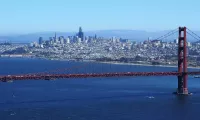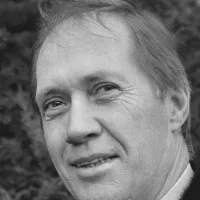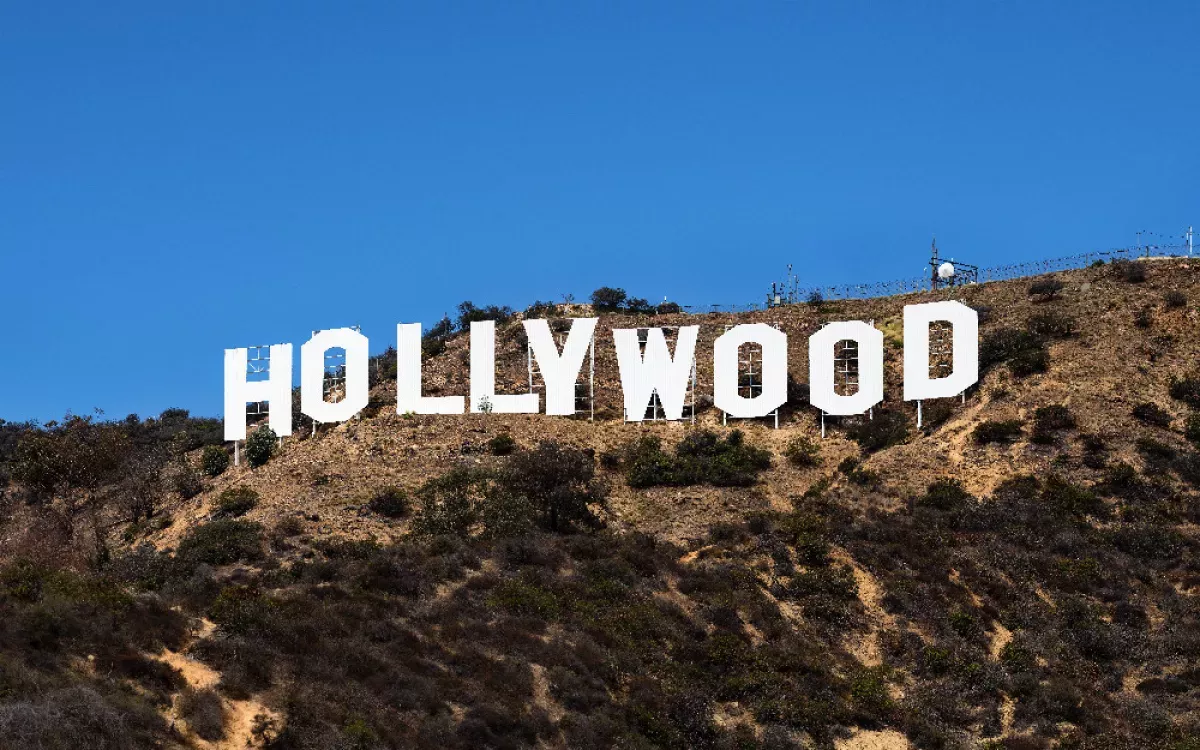Los Angeles is the most populous city in California and a major commercial, financial, and cultural hub of Southern California. With approximately 3.88 million residents within the city and 12.9 million in the metropolitan area (2024), it is the second-most populous city in the United States, known for its ethnic and cultural diversity. The Greater Los Angeles area, including Riverside and San Bernardino, encompasses over 18.5 million residents, forming a vast metropolis.
1900: Los Angeles Population Growth
By 1900, the population of Los Angeles had grown to more than 102,000, putting pressure on the city's water supply.
1900: Paris hosts the Olympic Games
Los Angeles will be the third city after Paris (1900, 1924 and 2024) to host the Olympic Games three times.
1903: Wright Brothers First Airplane Flight
Los Angeles became a major center of wartime manufacturing during World War II; the area produced more aircraft in one year than in all the pre-war years since the Wright brothers first flew an airplane in 1903, combined.
September 14, 1908: First Municipal Zoning Ordinance
On September 14, 1908, Los Angeles created the first municipal zoning ordinance in the United States, establishing residential and industrial land use zones.
1908: Pronunciation Variants
In 1908, librarian Charles Fletcher Lummis reported that there were at least 12 pronunciation variants for the name of Los Angeles.
1908: London hosts the Olympic Games
Los Angeles will be the third city after London (1908, 1948 and 2012) to host the Olympic Games three times.
1910: Hollywood Merges with Los Angeles
In 1910, Hollywood merged into Los Angeles, with 10 movie companies already operating in the city.
1913: Completion of the Los Angeles Aqueduct
In 1913, the Los Angeles Aqueduct was completed, delivering water from Eastern California and enabling the further expansion of the city.
1915: Exceptions to Residential Zones
Between 1908 and 1915, the Los Angeles City Council created various exceptions to the broad proscriptions that applied to the three residential zones, and as a consequence, some industrial uses emerged within them.
1916: Comparison to NYC Zoning Ordinance
Los Angeles's zoning laws from 1908 differed from later zoning laws like the 1916 New York City Zoning Ordinance because they did not establish a comprehensive zoning map.
1921: Film Industry Concentration
By 1921, more than 80 percent of the world's film industry was concentrated in Los Angeles.
1923: California's Petroleum Output
By 1923, petroleum discoveries in Los Angeles and the surrounding area had helped California become the country's largest oil producer, accounting for about one-quarter of the world's petroleum output.
1923: Foursquare Gospel founded
In 1923, the International Church of the Foursquare Gospel was founded in Los Angeles by Aimee Semple McPherson.
1923: Breed Street Shul built
The Breed Street Shul in East Los Angeles, built in 1923, was the largest synagogue west of Chicago in its early decades.
1924: Paris hosts the Olympic Games
Los Angeles will be the third city after Paris (1900, 1924 and 2024) to host the Olympic Games three times.
1930: Los Angeles Population Surpasses One Million
By 1930, the population of Los Angeles surpassed one million.
January 15, 1932: Greatest snowfall recorded in downtown Los Angeles
On January 15, 1932, downtown Los Angeles experienced its greatest recorded snowfall of 2.0 inches (5 cm).
1932: Summer Olympics of Los Angeles.
According to an analysis of contemporary newspaper reports, the 1932 Summer Olympics, also held in Los Angeles, was the second Olympics to turn a profit.
1932: Los Angeles Hosts the Summer Olympics
In 1932, Los Angeles hosted the Summer Olympics.
1933: Long Beach Earthquake
In 1933, the Long Beach earthquake hit the Los Angeles area.
1934: Official Pronunciation of Los Angeles
Since the 1930s, /lɔːs ˈændʒələs/ has been most common. In 1934, the United States Board on Geographic Names decreed that this pronunciation be used by the federal government.
1939: Opening of Union Station
Union Station, the largest passenger rail terminal in the Western United States, opened in 1939.
1946: Rams played home games
From 1946 to 1979 the Los Angeles Rams played their home games in the Coliseum.
1946: Aleutian Islands Earthquake
In 1946, harbor areas of Los Angeles were damaged by waves from the Aleutian Islands earthquake.
1948: London hosts the Olympic Games
Los Angeles will be the third city after London (1908, 1948 and 2012) to host the Olympic Games three times.
January 4, 1949: Lowest recorded temperature
On January 4, 1949, the lowest temperature of 28 °F (−2 °C) was recorded at the official downtown station.
1952: Mayor Bowron's Pronunciation Jury
In 1952, a "jury" appointed by Mayor Fletcher Bowron endorsed the pronunciation /lɔːs ˈændʒələs/ as the official pronunciation.
1953: Pronunciation of Los Angeles
In 1953, an article stated that the pronunciation /lɔːs ˈændʒələs/ was established following the 1850 incorporation of the city.
1960: Valdivia Earthquake
In 1960, harbor areas of Los Angeles were damaged by waves from the Valdivia earthquake.
1960: Zoned Capacity in Los Angeles
In 1960, the city of Los Angeles had a total zoned capacity for approximately 10 million people.
1960: Chargers relocate back to Los Angeles
The San Diego Chargers announced on January 12, 2017, that they would also relocate back to Los Angeles (the first since its inaugural season in 1960) and become the Los Angeles Chargers beginning in the 2017 NFL season and played at Dignity Health Sports Park in Carson, California, for three seasons.
1962: Snowfall since 1962
Los Angeles had its first snowfall since 1962 in February 2019.
1964: Alaska Earthquake
In 1964, harbor areas of Los Angeles were damaged by waves from the Alaska earthquake.
1965: Watts Riots
In 1965, racial tensions led to the Watts riots, resulting in 34 deaths and over 1,000 injuries.
1969: First ARPANET Transmission
In 1969, California became the birthplace of the Internet, as the first ARPANET transmission was sent from UCLA to the Stanford Research Institute in Menlo Park.
1971: San Fernando Earthquake
In 1971, the San Fernando earthquake hit the Los Angeles area.
1973: Tom Bradley Elected Mayor
In 1973, Tom Bradley was elected as the city's first African American mayor.
1974: Symbionese Liberation Army Standoff
In 1974, the Symbionese Liberation Army's South Central standoff occurred.
1977: Hillside Stranglers Murder Cases
From 1977 to 1978, the Hillside Stranglers murder cases occurred in Los Angeles.
1978: Proposition 13 Impact on School Funding
After Proposition 13 was approved in 1978, urban school districts in Los Angeles had considerable trouble with funding.
1978: Hillside Stranglers Murder Cases
From 1977 to 1978, the Hillside Stranglers murder cases occurred in Los Angeles.
January 29, 1979: Last 32 °F reading at downtown station
On January 29, 1979, downtown Los Angeles recorded its last freezing temperature of 32 °F (0 °C), an extremely rare occurrence in the city basin and along the coast.
1979: Rams played home games
From 1946 to 1979 the Los Angeles Rams played their home games in the Coliseum.
1980: Rams moved to Anaheim Stadium
From 1980 until 1994, the Los Angeles Rams moved to Anaheim Stadium.
1980: Homicide Rate
In 1980, the homicide rate in Los Angeles was 34.2 per 100,000.
1984: Los Angeles Hosts Summer Olympic Games
In 1984, Los Angeles hosted the Summer Olympic Games for the second time, becoming financially successful despite being boycotted by 14 Communist countries.
1984: Los Angeles Becomes Second Largest City
In early 1984, Los Angeles surpassed Chicago in population, becoming the second-largest city in the United States.
1984: Los Angeles Hosts the Summer Olympics for a Second Time
Los Angeles hosted the Summer Olympics for the second time in 1984.
1985: Deaflympics
Los Angeles also hosted the Deaflympics in 1985.
1987: Whittier Narrows Earthquake
In 1987, the Whittier Narrows earthquake hit the Los Angeles area.
1990: Decrease in Zoned Housing Capacity
By 1990, Los Angeles's zoned capacity had fallen to 4.5 million as a result of policy decisions to ban housing through zoning.
1990: Opening of the A Line
In 1990, the A Line opened and was the first line in the system.
April 29, 1992: Rodney King Riots
On April 29, 1992, racial tensions erupted after the acquittal of LAPD officers involved in the Rodney King beating, culminating in large-scale riots.
1992: City Records High Number of Murders
In 1992, the city of Los Angeles recorded 1,092 murders.
1993: Tom Bradley Retires
In 1993, Tom Bradley retired from his position as mayor.
1994: Rams moved to Anaheim Stadium
From 1980 until 1994, the Los Angeles Rams moved to Anaheim Stadium.
1994: Northridge Earthquake
In 1994, the Northridge earthquake hit the Los Angeles area.
1995: Rams and Raiders leave Los Angeles
In 1995, both the Los Angeles Rams and the Los Angeles Raiders left the city. The Rams moved to St. Louis, and the Raiders moved back to Oakland.
June 8, 1999: Adoption of Current City Charter
On June 8, 1999, the current charter for the City of Los Angeles was adopted. It has been amended multiple times since then.
1999: Ratification of Los Angeles City Charter
In 1999, voters ratified the City of Los Angeles' charter, which created a system of advisory neighborhood councils.
September 2002: Cathedral of Our Lady of the Angels opened
In September 2002, the Cathedral of Our Lady of the Angels opened in downtown Los Angeles, overseen by Cardinal Roger Mahony.
2002: Defeat of Secession Efforts
In 2002, Mayor James Hahn led the campaign against secession, resulting in voters defeating efforts by the San Fernando Valley and Hollywood to secede from the city.
2005: LAPD under-reporting crime
In 2005, the LAPD had been under-reporting a category of crime between 2005 and 2012, making the rate appear lower than it was for that period.
2006: Most polluted city
In 2006, the American Lung Association ranked Los Angeles as the most polluted city in the country for short-term and year-round particle pollution.
2006: Commute Times
In 2006, the mean travel time for work commutes in Los Angeles was 29.2 minutes, similar to those of San Francisco and Washington, D.C.
2007: Most polluted city
In 2007, the American Lung Association ranked Los Angeles as the most polluted city in the country for short-term and year-round particle pollution.
2008: Second most polluted city
In 2008, Los Angeles was ranked the second most polluted city in the country and had the highest year-round particulate pollution.
2008: Murders Statistics
In 2008, murders statistics were tracked in Los Angeles.
2008: Los Angeles/Long Beach Harbor Trade Volume
In 2008, the Los Angeles/Long Beach Harbor had a trade volume of over 14.2 million TEU's, making it the fifth busiest container port in the world.
2009: 50-year Low in Homicides
In 2009, Los Angeles experienced a 50-year low in homicides, with 314 recorded.
September 27, 2010: Highest recorded temperature
On September 27, 2010, the official downtown station recorded its highest temperature at 113 °F (45 °C).
2010: Renewable energy goal
In 2010, Los Angeles met its goal of providing 20 percent of the city's power from renewable sources.
2010: Chile Earthquake
In 2010, harbor areas of Los Angeles were damaged by waves from the Chile earthquake.
2011: Japan Earthquake
In 2011, harbor areas of Los Angeles were damaged by waves from the Japan earthquake.
2011: Procession and Mass revival
In 2011, the Queen of Angels Foundation revived the custom of conducting a procession and Mass in honor of Nuestra Señora de los Ángeles, commemorating the founding of Los Angeles in 1781.
2012: Alpha world city
According to a 2012 study by a group at Loughborough University, Los Angeles has been classified an "alpha world city".
2012: LAPD under-reporting crime
In 2012, the LAPD had been under-reporting a category of crime between 2005 and 2012, making the rate appear lower than it was for that period.
2012: Kings' Stanley Cup title
Los Angeles completed championships in its five major leagues (MLB, NFL, NHL, NBA, and MLS) when the Kings won the Stanley Cup in 2012.
2012: London hosts the Olympic Games
Los Angeles will be the third city after London (1908, 1948 and 2012) to host the Olympic Games three times.
2013: Worst smog in the nation
In 2013, the American Lung Association's survey ranked the Los Angeles metro area as having the nation's worst smog, and fourth in both short-term and year-round pollution amounts.
2014: Religion
According to a 2014 study by the Pew Research Center, Christianity is the most prevalently practiced religion in Los Angeles (65%).
2014: Bobcat Population Study
In 2014, Serieys et al. found selection of immune genetics at several loci in the bobcat population of Los Angeles.
2014: Port of Los Angeles Cruise Passengers
In 2014, the Port of Los Angeles's World Cruise Center served about 590,000 passengers.
2015: LAPD Crime Under-Reporting Revealed
In 2015, it was revealed that the LAPD had been under-reporting a category of crime between 2005 and 2012, making the rate appear lower than it was for that period.
2015: Special Olympics World Summer Games
Los Angeles also hosted the Special Olympics World Summer Games in 2015.
2015: No NFL team
Los Angeles was the second-largest city in the United States but hosted no NFL team between 1995 and 2015.
January 12, 2016: Rams return to Los Angeles
On January 12, 2016, the NFL announced that the Rams would be moving back to Los Angeles for the 2016 NFL season, after 21 seasons in St. Louis.
2016: Public Transportation Usage
According to the 2016 American Community Survey, 9.2% of working Los Angeles residents used public transportation to commute to work.
2016: Cannabis legalization
In 2016, the sale and distribution of cannabis was legalized. Following this the Department of Cannabis Regulation enforces cannabis legislation .
January 12, 2017: Chargers relocate to Los Angeles
On January 12, 2017, the San Diego Chargers announced that they would relocate back to Los Angeles and become the Los Angeles Chargers beginning in the 2017 NFL season.
2017: Global Financial Centres Index
In the 2017 Global Financial Centres Index, Los Angeles was ranked the 19th most competitive financial center in the world and sixth most competitive in the U.S.
2018: Fortune 500 companies
As of 2018, Los Angeles is home to three Fortune 500 companies: AECOM, CBRE Group, and Reliance Steel & Aluminum Co.
2018: Gross metropolitan product
As of 2018, the Los Angeles metropolitan area has a gross metropolitan product of over $1.0 trillion, making it the third-largest economic metropolitan area in the world.
2018: Los Angeles Metropolitan Area GDP
In 2018, the Los Angeles metropolitan area had a gross metropolitan product of over $1.0 trillion, making it the city with the third-largest GDP in the world.
February 2019: Most recent snowfall
In February 2019, Los Angeles experienced its first snowfall since 1962, with snow falling in areas adjacent to the city.
August 2019: KCET Re-Joins PBS Network
In August 2019, KCET re-joined the PBS network as a secondary affiliate, after eight years as an independent public television station.
October 2019: Cannabis businesses approved
As of October 2019, more than 300 existing cannabis businesses have been approved to operate in Los Angeles.
2019: Housing data
From 2019 to 2023, owner-occupied housing units made up 36.3% of the total Los Angeles housing units, and they cost $879,500 on average. With a mortgage, the median selected monthly owner costs are $3,399, and without a mortgage $950. Median gross rent is $1,879. There are 1,419,663 households in Los Angeles, with an average of 2.64 people being part of them.
2019: Amtrak Boardings
In 2019, Union Station had 1.4 million Amtrak boardings and de-boardings, making it Amtrak's fifth busiest station.
2019: Causes of homelessness
In 2019, almost 60 percent of the 82,955 people who became newly homeless in Los Angeles said their homelessness was because of economic hardship.
2019: Los Angeles Area Roads Most Congested in the U.S.
In 2019, the Texas Transportation Institute's annual Urban Mobility Report ranked Los Angeles area roads the most congested in the United States, with residents experiencing an average of 119 hours of traffic delay.
September 6, 2020: Highest temperature ever officially recorded
On September 6, 2020, the highest temperature ever officially recorded within the City of Los Angeles was 121 °F (49 °C) at the weather station at Pierce College in Woodland Hills.
2020: Move to SoFi Stadium
During the 2020 NFL season, the Los Angeles Rams and the Los Angeles Chargers moved to the newly built SoFi Stadium in Inglewood.
2020: U.S. census
In 2020, the U.S. census reported Los Angeles had a population of 3,898,747 with a population density of 8,304.2 people per square mile.
January 2021: Snowfall
In January 2021, snow fell in areas adjacent to Los Angeles.
2021: Murders Rise to Highest Rate Since 2008
In 2021, murders in Los Angeles rose to their highest rate (8.5) since 2008.
2022: Los Angeles County Population
As of 2022, Los Angeles County, where the city is located, is the most populous county in the United States with an estimated 9.86 million residents.
2022: Karen Bass Becomes Mayor
In 2022, Karen Bass became the city's first female mayor, making Los Angeles the largest U.S. city to have ever had a woman as mayor.
2022: Los Angeles Metro Bus Annual Ridership
In 2022, Los Angeles Metro Bus had a total of 197,950,700 riders.
2022: Sectors revenue
In 2022, accommodation and food services made $17,366,966, health care and social assistance sectors made $46,297,839, transportation and warehousing $25,410,257, and the retail sector $81,351,523.
2023: Population data
According to 2023 data from the United States Census Bureau, Los Angeles's population is 47.2% Hispanic or Latino, 28.3% non-Hispanic White, 8.5% Black, 12.0% Asian, 1.2% Native American and 0.1% Pacific Islander.
2023: Los Angeles Visitor Count
As of 2023, Los Angeles is the third-most visited city in the U.S. with over 2.7 million visitors.
2023: Metro Rail Extent
As of 2023, there are 101 stations in the Metro Rail system.
2023: Los Angeles Metro Bus Ridership
As of the third quarter of 2023, Los Angeles Metro Bus system had an average ridership of approximately 692,500 per weekday.
2023: Household income
From 2019 to 2023, the median household income in Los Angeles was $80,366 (2023 dollars), while the per capita income in the past 12 months was $46,270.
January 2024: Homeless population
As of January 2024, there are 45,252 homeless people in the City of Los Angeles, comprising roughly 60% of the homeless population of LA County.
2024: Office space vacancy rate
At the end of the second quarter of 2024, Los Angeles saw an office space vacancy rate of 31.5%, a 33.5% increase year-over-year Retail vacancy stood at 8.6%, a 15% increase year-over-year.
2024: Decline in Murder Spike
By 2024, the spike in murders had receded to a rate of 6.1 in Los Angeles.
2024: Los Angeles Population
In 2024, Los Angeles has an estimated 3.88 million residents within the city limits, making it the second-most populous city in the United States. The metropolitan area has a population of 12.9 million, and Greater Los Angeles has over 18.5 million residents.
2024: Paris hosts the Olympic Games
Los Angeles will be the third city after Paris (1900, 1924 and 2024) to host the Olympic Games three times.
January 2025: Devastating Wildfires
In January 2025, a series of devastating wildfires swept through Southern California, with the Pacific Palisades fire causing widespread destruction in Los Angeles's northwestern community of Pacific Palisades.
June 2025: ICE Raids and Protests
In June 2025, Los Angeles experienced protests and riots following raids by Immigration and Customs Enforcement (ICE) due to its sanctuary city status.
2025: Federal Reserve Bank
As of 2025, Los Angeles is the largest city in the United States to not be home to a Federal Reserve Bank.
2025: Michelin Guide recognition
As of 2025, the Michelin Guide recognized 20 starred restaurants in Los Angeles including 2 restaurants, Providence and Somni, which earned 3 Michelin stars.
2025: Paramount Skydance Corporation headquarters
Since 2025, Paramount Skydance Corporation has had its corporate headquarters in Los Angeles.
2026: Future FIFA World Cup Host City
In 2026, Los Angeles will be one of the U.S. host cities for the FIFA World Cup, with matches at SoFi Stadium.
2028: Los Angeles Hosts Summer Olympics
Los Angeles will host the 2028 Summer Olympics and Paralympic Games, making Los Angeles the third city to host the Olympics three times.
Mentioned in this timeline
California is a U S state on the Pacific Coast...

SoFi Stadium located in Inglewood California is a multi-purpose indoor...

Washington D C is the capital city and federal district...

San Francisco is a major commercial financial and cultural hub...
China officially the People's Republic of China is an East...
Japan is an East Asian island country located in the...
Trending

52 minutes ago Medvedev vs. Shang: Dubai Duty Free Tennis Championship Prediction and Preview

52 minutes ago Shapovalov credits wife's support, eyes top 10 return amidst Dubai debut.
52 minutes ago England and Pakistan clash in critical T20 World Cup encounter for semi-final spot.

3 hours ago Taron Egerton withdraws from James Bond consideration, citing unsuitability and self-described 'messiness'.
5 hours ago Rose Byrne shares insights into family life with Bobby Cannavale, addresses award shows.

4 hours ago David Carradine's death and legacy explored in a new podcast, sparking renewed interest.
Popular

Jesse Jackson is an American civil rights activist politician and...

Barack Obama the th U S President - was the...

Bernie Sanders is a prominent American politician currently serving as...

Susan Rice is an American diplomat and public official prominent...

XXXTentacion born Jahseh Dwayne Ricardo Onfroy was a controversial yet...

Michael Joseph Jackson the King of Pop was a highly...
